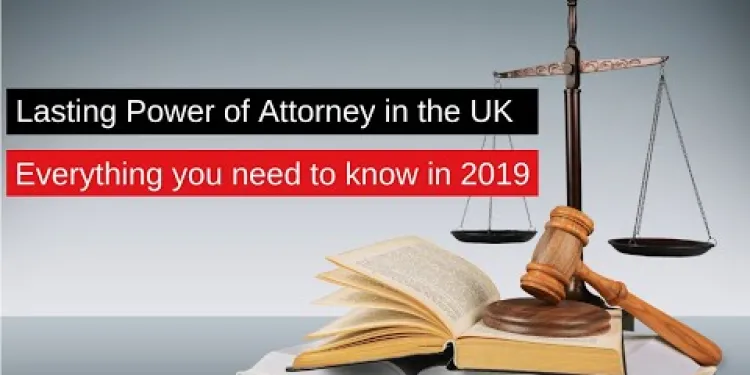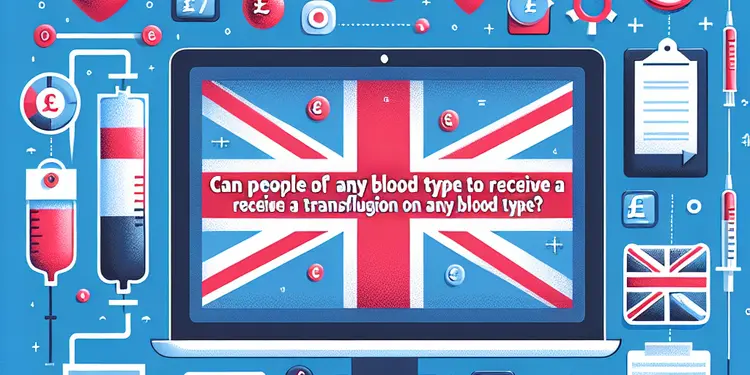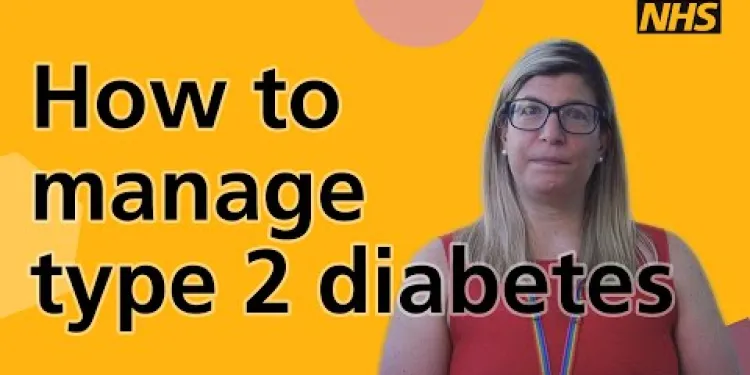
Find Help
More Items From Ergsy search
-

What are the types of LPA?
Relevance: 100%
-

What is a Lasting Power of Attorney?
Relevance: 42%
-

What is a lasting Power of Attorney?
Relevance: 42%
-

How to Set Up a Lasting Power of Attorney
Relevance: 41%
-

Lasting Power of Attorney UK - A 2023 Guide
Relevance: 41%
-

What Is A Power of Attorney
Relevance: 35%
-

What is the difference between type 1 and type 2 diabetes?
Relevance: 28%
-

What is a Power of Attorney?
Relevance: 28%
-

Type 1 Diabetes supporting adults to manage Type 1 diabetes
Relevance: 27%
-

Is Type 2 Diabetes hereditary?
Relevance: 26%
-

What is type 1 diabetes?
Relevance: 26%
-

What is type 1 diabetes?
Relevance: 26%
-

Are there different types of ADHD?
Relevance: 26%
-

Is Ozempic suitable for type 1 diabetes?
Relevance: 25%
-

Is there a genetic predisposition to type 1 diabetes?
Relevance: 25%
-

Can people of any blood type receive a transfusion of any blood type?
Relevance: 25%
-

Prolapse Types and Tips
Relevance: 25%
-

Can Type 2 Diabetes go away?
Relevance: 25%
-

What causes Type 2 Diabetes?
Relevance: 25%
-

Can Type 2 Diabetes be prevented?
Relevance: 25%
-

What are the symptoms of Type 2 Diabetes?
Relevance: 25%
-

Are there different types of asthma?
Relevance: 24%
-

How to manage type 2 diabetes
Relevance: 24%
-

How is Type 2 Diabetes diagnosed?
Relevance: 24%
-

What are the types of thrombosis?
Relevance: 24%
-

What are the main types of eczema?
Relevance: 24%
-

Can Mounjaro be used in type 1 diabetes?
Relevance: 24%
-

What are the types of dietary fiber?
Relevance: 24%
-

What is the role of insulin in Type 2 Diabetes?
Relevance: 23%
-

What are the types of stoma bags?
Relevance: 23%
-

What are the limitations of type 1 diabetes screening?
Relevance: 23%
-

Should I screen my child for type 1 diabetes?
Relevance: 23%
-

Are there different types of care homes?
Relevance: 23%
-

What are the main types of meningitis?
Relevance: 23%
-

Are there different types of cannabis extracts?
Relevance: 23%
-

What complications are associated with Type 2 Diabetes?
Relevance: 23%
-

How is Type 2 Diabetes treated?
Relevance: 23%
-

Are there different types of surveyor's reports?
Relevance: 23%
-

Are there different types of hip implants?
Relevance: 23%
-

Is Wegovy used for type 2 diabetes management?
Relevance: 23%
What is a Lasting Power of Attorney (LPA)?
A Lasting Power of Attorney (LPA) is a legal document that allows an individual (known as the 'donor') to appoint one or more persons (known as 'attorneys') to help them make decisions or to make decisions on their behalf. This is used when the donor no longer has the capacity to make decisions for themselves. In the United Kingdom, LPAs are crucial for planning ahead in case of future incapacity due to illness or accident.
Types of Lasting Power of Attorney
There are two main types of Lasting Power of Attorney in the UK: the Property and Financial Affairs LPA and the Health and Welfare LPA. Each serves a different purpose, addressing different aspects of the donor's life. It is possible to set up one or both types of LPA, depending on personal needs and preferences.
Property and Financial Affairs LPA
The Property and Financial Affairs LPA gives an attorney the authority to make decisions regarding the donor's financial and property matters. This can include managing bank accounts, paying bills, collecting income and benefits, or even selling the donor's home. This type of LPA can be used as soon as it is registered, with the donor's permission, allowing for assistance even when the donor still has mental capacity. It ensures that financial affairs are handled smoothly, protecting the donor's assets and ensuring their financial stability.
Health and Welfare LPA
The Health and Welfare LPA allows an attorney to make decisions about the donor's medical care and general welfare. This includes decisions about treatment types, care homes, and day-to-day care, such as diet and daily routine. Unlike the Property and Financial Affairs LPA, a Health and Welfare LPA can only be used if the donor has lost the mental capacity to make these decisions themselves. This type of LPA is vital for ensuring that the donor's healthcare and personal preferences are respected and followed when they are unable to articulate them.
Key Considerations
When choosing an attorney for either type of LPA, it is essential to select someone trustworthy and competent. The attorney must act in the best interests of the donor and make decisions that align with their wishes. Both types of LPA need to be registered with the Office of the Public Guardian before they can be used. It's crucial to prepare LPAs while the donor is still capable of making informed decisions, ensuring they have control over who manages their affairs.
What is a Lasting Power of Attorney (LPA)?
A Lasting Power of Attorney, or LPA, is a special paper that lets someone you trust help you make choices. This person is called an 'attorney', and you are called the 'donor'. If you get too sick to make decisions yourself, your attorney can help you. In the UK, an LPA is important because it helps plan for the future if you can't decide things because of illness or accident.
Types of Lasting Power of Attorney
In the UK, there are two kinds of LPA. One is for money and property, called the Property and Financial Affairs LPA. The other one is for health and personal care, called the Health and Welfare LPA. You can choose to have one or both, depending on what you need.
Property and Financial Affairs LPA
This LPA helps take care of your money and things you own. Your attorney can manage your bank accounts, pay your bills, collect money for you, or even sell your house if needed. You can use this LPA as soon as it's ready, with your permission. It helps to make sure your money is safe and well-managed.
Health and Welfare LPA
This LPA helps with health decisions and personal care. Your attorney can decide on medical treatments, where you live, and your daily routine. This type of LPA is only used if you can't make decisions yourself. It makes sure your wishes about health and care are respected.
Key Considerations
Pick someone you trust as your attorney. They should make choices that are good for you and respect your wishes. Both types of LPA need to be registered with a place called the Office of the Public Guardian before they can be used. It's important to make your LPAs when you are able to choose, so you decide who helps you in the future.
You can use tools like diagrams or easy-to-read guides to understand LPAs better. You might also talk to family or a helpful advisor to make sure everything is clear.
Frequently Asked Questions
What does LPA stand for in the context of legal documents?
LPA stands for Lasting Power of Attorney, a legal document allowing a person to designate someone to make decisions on their behalf.
What are the types of Lasting Power of Attorney (LPA)?
There are mainly two types of LPA: Property and Financial Affairs LPA and Health and Welfare LPA.
What is the purpose of a Property and Financial Affairs LPA?
A Property and Financial Affairs LPA allows the appointed attorney to manage financial matters, such as property management, bill payment, and investments, on behalf of the donor.
What decisions can a Health and Welfare LPA cover?
A Health and Welfare LPA allows the appointed attorney to make decisions about medical treatment, care, living arrangements, and other welfare concerns when the donor lacks the capacity to make these decisions.
Can an attorney appointed under LPA make decisions when the donor still has capacity?
Under a Property and Financial Affairs LPA, the attorney can make decisions as soon as the LPA is registered, with the donor's consent. For a Health and Welfare LPA, the attorney can only make decisions when the donor lacks the capacity to do so.
Who can be an attorney in an LPA?
An attorney can be a trusted friend, relative, or a professional, provided they are over 18 and not bankrupt in the case of a Property and Financial Affairs LPA.
What are the eligibility requirements for creating an LPA?
The person creating an LPA, known as the donor, must be at least 18 years old and have the mental capacity to make the LPA.
Can an LPA be changed or revoked?
Yes, an LPA can be changed or revoked as long as the donor still has mental capacity to understand the implications of these changes.
How is an LPA registered?
An LPA must be registered with the Office of the Public Guardian (OPG) before it can be used.
Are LPAs applicable worldwide?
An LPA is primarily valid within the jurisdiction it was registered, such as England and Wales. However, some considerations might be given abroad depending on local laws.
What happens if someone doesn’t have an LPA in place?
Without an LPA, if a person becomes unable to make decisions, their family or friends may need to apply for a deputyship through the court, which can be a lengthy and expensive process.
What is the difference between Enduring Power of Attorney and Lasting Power of Attorney?
Enduring Power of Attorney (EPA) was the predecessor of LPA covering only financial matters. LPAs replace EPAs and offer wider scope, including health and welfare decisions.
Can you have more than one attorney under an LPA?
Yes, a donor can appoint multiple attorneys and specify whether they must act jointly or can act independently.
What happens if an attorney dies or cannot act?
If an attorney can no longer act and no replacement attorney is designated, the LPA may become invalid unless multiple attorneys were appointed who can act independently.
What is a certificate provider in the context of an LPA?
A certificate provider is an independent person who confirms the donor understands the LPA and is not under any pressure to create it.
Can a spouse be an attorney under an LPA?
Yes, a spouse or civil partner can be appointed as an attorney, provided they meet the general requirements of being over 18 and not bankrupt.
What powers does an attorney NOT have under an LPA?
Attorneys cannot make or change a will, vote on the donor’s behalf, or make decisions not in the donor’s best interests.
How long does it take to register an LPA?
It usually takes about 8 to 10 weeks to register an LPA with the Office of the Public Guardian if there are no mistakes in the application.
Are there any alternatives to an LPA if it’s too late to appoint one?
If it’s too late to appoint an LPA due to mental incapacity, an application for a court-appointed deputy may be necessary.
What costs are involved in setting up an LPA?
There are registration fees charged by the OPG, and there may be legal fees if one chooses to hire a professional to assist in creating the LPA.
What does LPA mean in legal papers?
LPA means Lasting Power of Attorney. It is an important paper that lets you choose someone to make choices for you if you cannot do it yourself.
What are the different kinds of Lasting Power of Attorney (LPA)?
A Lasting Power of Attorney (or LPA) gives someone the power to help make decisions for you.
There are two main kinds of LPA:
- Health and Care LPA: This one helps with decisions about health and personal care, like going to the doctor or where you should live.
- Finance and Property LPA: This one helps with decisions about money, like paying bills or looking after your house.
It can be good to ask someone you trust for help, like a family member or friend. You can also use pictures or videos to help understand more about LPAs. Talking to a helper or using a checklist can make things easier too.
There are two main types of LPA. One helps you with money and property. The other helps with health and care.
Why do we use a Property and Financial Affairs LPA?
A Property and Financial Affairs LPA helps someone trust another person to make money and property choices for them. This can happen if they are too sick or find it hard to make decisions.
The trusted person can:
- Pay bills
- Sell a house
- Manage bank accounts
Using pictures, videos, or talking with a friend can help understand LPAs better.
A Property and Financial Affairs LPA lets someone you choose help with money and things you own. They can pay bills, look after your home, and manage your money for you.
What can a Health and Welfare LPA decide?
A Health and Welfare LPA is a way to give someone you trust, called an attorney, the power to make choices for you. This is for when you are not able to decide for yourself.
The attorney can help decide things like:
- What medical care you need.
- Where you should live.
- Other important things about your well-being.
If reading is hard, you can ask someone to read it to you. You can also use tools that read text out loud to help understand better.
Can a lawyer help make decisions if the person who chose them can still decide?
With a Property and Money LPA, the helper can make choices when the paper is ready. But the person must say it's okay.
With a Health and Care LPA, the helper can only make choices when the person can't do it themselves.
Who can be a helper in an LPA?
A helper is someone who can make choices for you if you need help.
Choose a person you can trust. It can be a family member or a friend.
Your helper must be over 18 years old.
Your helper should be good at making choices. They should listen to what you want.
If you are not sure who to pick, you can ask someone for advice.
Using pictures or simple words can help you decide.
A person called an attorney can help you make decisions. They can be a friend, a family member, or someone who works as an attorney. They must be over 18 years old and not bankrupt if they help with your money and things.
Who can make an LPA?
To make an LPA, you must:
- Be 18 years old or older.
- Understand what an LPA is.
- Be able to make decisions for yourself.
Tools to help:
- Ask someone to explain in simple words.
- Use pictures or videos to learn.
The person who makes an LPA (we call them the donor) must be 18 years old or older. They must also be able to understand what making an LPA means.
Can you change or cancel an LPA?
Yes, you can change or stop an LPA if you can still make your own decisions and understand what the changes mean.
How do you register an LPA?
You must register an LPA to use it. Here is how you can do it:
- Fill out the LPA form. You might need help from someone you trust.
- Send the form to the Office of the Public Guardian. They can help if you have questions.
- You wait for about 8 weeks. Then you will know if it is registered.
Helpful tips:
- Ask a friend or family to help you with the form.
- Use a computer or a magnifying glass if you need help reading small text.
- Write down any questions you have before talking to the Office of the Public Guardian.
You need to register an LPA with the Office of the Public Guardian (OPG) before you can use it.
Can LPAs be used everywhere in the world?
An LPA works in the country it was made, like England and Wales. It might work in other countries, but it depends on their rules.
What if someone doesn't have an LPA?
If a person doesn't have an LPA (Lasting Power of Attorney), it can be harder for others to help them make decisions.
Here is what can happen:
- Their family might have to go to court to help make decisions for them.
- This can take a long time and may cost money.
- It can also be stressful for the family.
Support tools that might help:
- Talking to a helper or advisor about setting up an LPA.
- Using simple guides or pictures to understand what an LPA is.
If someone can't make choices for themselves and they don't have an LPA, their family or friends might have to ask the court for help. This can take a long time and cost a lot of money.
What's the difference between Enduring Power of Attorney and Lasting Power of Attorney?
A Power of Attorney is a paper that lets someone help you make decisions.
Enduring Power of Attorney (EPA): This was used before October 2007. It lets someone help with money and property. It doesn't cover health.
Lasting Power of Attorney (LPA): This is used now. It lets someone help with money and property, and health. It started in October 2007.
If you want more help, you can use a computer to read out loud. You can also ask a family member or friend for support.
Before, there was something called Enduring Power of Attorney (EPA). This only helped with money matters. Now, there is something new called Lasting Power of Attorney (LPA). LPAs help with more things, like health and welfare choices.
Can you have more than one helper in an LPA?
An LPA is a form that lets you choose helpers to make choices for you. You can pick more than one helper to help you with things.
Using pictures or asking someone to explain things can also help you understand better.
Yes, a donor can choose more than one person, called attorneys, to help. The donor can say if they all need to decide together or if they can decide on their own.
What happens if a lawyer dies or cannot work?
If your lawyer dies or cannot do their job, you might need to get a new one. Here are some things you can do:
- Ask another lawyer to help. They can tell you what to do next.
- Look for lawyers who can help with your kind of problem.
- Talk to a support service for advice. They can help find a new lawyer.
If you find reading hard, ask someone you trust to help explain things to you. You can also use tools like audio books or reading apps to help understand the words better.
If a lawyer, called an attorney, can't help you anymore and no new lawyer is chosen, your plan might not work. But if you have more than one lawyer who can make decisions by themselves, your plan might still be okay.
What is a certificate provider in an LPA?
A certificate provider is someone who helps with an LPA. An LPA is a legal document that lets someone you trust make decisions for you if you can't.
The certificate provider talks to you and makes sure you understand the LPA. They check that no one is making you sign it if you don't want to.
They must be someone you know well, like a friend, or someone who understands legal things, like a lawyer.
Using pictures or talking to someone who can explain the LPA to you can help you understand better.
A certificate provider is a person who helps. They make sure the donor understands the LPA. They check the donor is not being forced to make it.
Can Your Husband or Wife Help You with an LPA?
Your husband or wife can be your helper with an LPA. An LPA is a paper to give someone power to decide for you if you need help.
You might want to talk with someone you trust. They can help you choose the best person to be your helper.
Using pictures or drawing might also help you understand better.
Yes, your husband, wife, or civil partner can help you by being an attorney. They can do this if they are over 18 years old and they must not be bankrupt.
What can't an attorney do with an LPA?
An LPA stands for Lasting Power of Attorney. It lets someone you trust help make decisions for you if you can't.
Here are things an attorney can't do:
- They can’t make a will for you.
- They can’t give someone else their power.
- They can’t make decisions that go against the rules of the LPA.
- They can’t decide things that you didn't give them power for.
If you want help understanding, you might:
- Ask a friend or family to explain.
- Look at pictures or videos about LPA.
- Use simple word checkers online.
A lawyer cannot write or change a will for someone. They cannot vote for someone else, or make choices that are not good for the person they are helping.
How long does it take to register an LPA?
It can take about 8 weeks to register an LPA. An LPA is a special agreement where you choose someone to help you make decisions. To make it easier, you can:
- Ask someone you trust to help you fill out the forms.
- Use a computer to type the information if writing is hard.
- Take your time and do one step at a time.
- Use pictures or simple words to understand each step.
It takes 8 to 10 weeks to register an LPA with the Office of the Public Guardian. This is if there are no mistakes in the application.
Here are some tips to help you:
- Double-check your application for errors.
- Ask someone to help you fill out the form.
- Use spelling tools on your computer.
These steps can make the process easier.
What can you do instead of an LPA if it's too late to get one?
If someone can't choose an LPA because of mental difficulties, you might need to ask a court to choose a helper instead.
What does it cost to set up an LPA?
Here is how much an LPA might cost:
- You pay a fee. This is called an application fee.
- You might need to pay someone to help you fill out the forms.
Here are some tips to help you:
- Ask someone you trust to help you.
- You can use a computer or tablet to fill in forms online.
- There are videos online that can show you what to do.
You need to pay some money to the OPG to sign up. If you get a lawyer or professional to help make the LPA, this might cost more money.
Useful Links
This website offers general information and is not a substitute for professional advice.
Always seek guidance from qualified professionals.
If you have any medical concerns or need urgent help, contact a healthcare professional or emergency services immediately.
Some of this content was generated with AI assistance. We’ve done our best to keep it accurate, helpful, and human-friendly.
- Ergsy carfully checks the information in the videos we provide here.
- Videos shown by Youtube after a video has completed, have NOT been reviewed by ERGSY.
- To view, click the arrow in centre of video.
- Most of the videos you find here will have subtitles and/or closed captions available.
- You may need to turn these on, and choose your preferred language.
- Go to the video you'd like to watch.
- If closed captions (CC) are available, settings will be visible on the bottom right of the video player.
- To turn on Captions, click settings .
- To turn off Captions, click settings again.
More Items From Ergsy search
-

What are the types of LPA?
Relevance: 100%
-

What is a Lasting Power of Attorney?
Relevance: 42%
-

What is a lasting Power of Attorney?
Relevance: 42%
-

How to Set Up a Lasting Power of Attorney
Relevance: 41%
-

Lasting Power of Attorney UK - A 2023 Guide
Relevance: 41%
-

What Is A Power of Attorney
Relevance: 35%
-

What is the difference between type 1 and type 2 diabetes?
Relevance: 28%
-

What is a Power of Attorney?
Relevance: 28%
-

Type 1 Diabetes supporting adults to manage Type 1 diabetes
Relevance: 27%
-

Is Type 2 Diabetes hereditary?
Relevance: 26%
-

What is type 1 diabetes?
Relevance: 26%
-

What is type 1 diabetes?
Relevance: 26%
-

Are there different types of ADHD?
Relevance: 26%
-

Is Ozempic suitable for type 1 diabetes?
Relevance: 25%
-

Is there a genetic predisposition to type 1 diabetes?
Relevance: 25%
-

Can people of any blood type receive a transfusion of any blood type?
Relevance: 25%
-

Prolapse Types and Tips
Relevance: 25%
-

Can Type 2 Diabetes go away?
Relevance: 25%
-

What causes Type 2 Diabetes?
Relevance: 25%
-

Can Type 2 Diabetes be prevented?
Relevance: 25%
-

What are the symptoms of Type 2 Diabetes?
Relevance: 25%
-

Are there different types of asthma?
Relevance: 24%
-

How to manage type 2 diabetes
Relevance: 24%
-

How is Type 2 Diabetes diagnosed?
Relevance: 24%
-

What are the types of thrombosis?
Relevance: 24%
-

What are the main types of eczema?
Relevance: 24%
-

Can Mounjaro be used in type 1 diabetes?
Relevance: 24%
-

What are the types of dietary fiber?
Relevance: 24%
-

What is the role of insulin in Type 2 Diabetes?
Relevance: 23%
-

What are the types of stoma bags?
Relevance: 23%
-

What are the limitations of type 1 diabetes screening?
Relevance: 23%
-

Should I screen my child for type 1 diabetes?
Relevance: 23%
-

Are there different types of care homes?
Relevance: 23%
-

What are the main types of meningitis?
Relevance: 23%
-

Are there different types of cannabis extracts?
Relevance: 23%
-

What complications are associated with Type 2 Diabetes?
Relevance: 23%
-

How is Type 2 Diabetes treated?
Relevance: 23%
-

Are there different types of surveyor's reports?
Relevance: 23%
-

Are there different types of hip implants?
Relevance: 23%
-

Is Wegovy used for type 2 diabetes management?
Relevance: 23%


